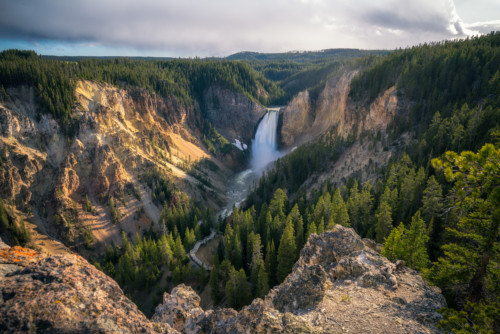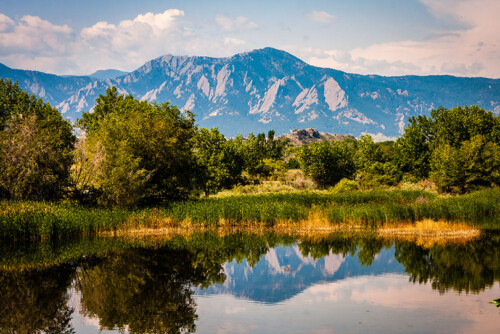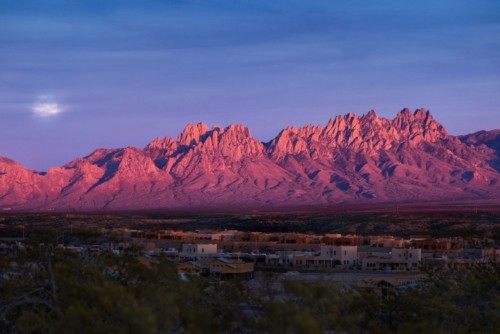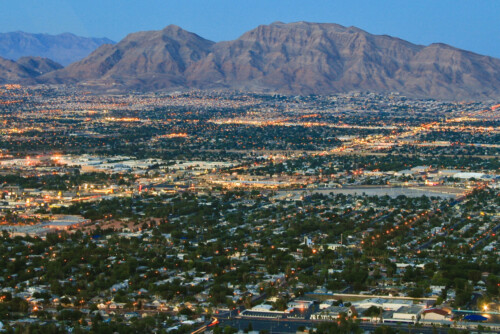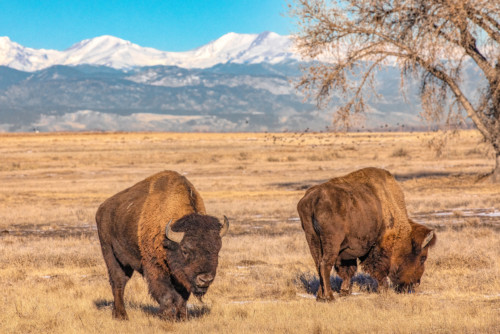In 2003, long before others were acting on or, sadly, even acknowledging the effects of rising temperatures and climate change, WRA launched an innovative program to advance clean energy and reduce greenhouse gas (GHG) emissions. We knew large-scale reductions in climate emissions were needed to divert the catastrophic effects of climate change. We knew the stakes couldn’t be higher and that the problem called for creatively using our expertise. This early start in renewable energy policy and advocacy as a means to fight climate change helped WRA grow into a leading clean energy expert.
Using what we learned from 15 years of clean energy work, WRA then initiated a bold plan in 2018 to significantly scale this work to do our part to fight climate change. The Climate Fix is a seven-year initiative to decarbonize the power sector on a regional level and reduce GHG emissions at a magnitude that has meaningful impact. Our original goal was to cut carbon emissions in the West 40% below 2016 levels by 2030. At the time, many factors made it hard to believe that was possible, including that coal was far less expensive than renewables. To boost our capacity and counter that reality, in the ensuing years we have more than doubled the WRA staff working on clean energy and cutting climate-warming emissions.
The Climate Fix relies on our deep expertise of driving state policy as a lever for transformational change. To achieve rapid, large-scale reductions from the energy sector, we focused on the region’s seven largest utilities, who were at the time responsible for over 70% of regional GHG emissions. After significant work by WRA, Xcel Energy was the first in the region and nation to set goals to reduce GHG emissions from its electricity system to be broadly in line with climate science — 80% by 2030 and 100% by 2050.
The announcement by Xcel in 2018 was a watershed moment demonstrating that our model of developing policy solutions and working directly with utilities and decision makers could drive significant change. In part due to our advocacy, other utilities followed suit: Public Service Company of New Mexico, Arizona Public Service, Tucson Electric Power, and PacifiCorp all subsequently announced decarbonization goals. Holding key stakeholders accountable to these goals and ensuring they actually achieve them is where the true impact of the Climate Fix happens.
We are proud to report that we have made extraordinary progress in securing public commitments from states and utilities to reduce emissions. We have secured 76 million tons of yearly GHG reductions — over 70% toward our goal of securing our increased commitment to cut 105 million tons of carbon emissions by 2025. And as our success and confidence have grown along the way, so have our goals. While transforming the power sector is instrumental to the Climate Fix, it is not enough. WRA added emissions reduction goals of an additional 10 million tons and 5 million tons from the transportation and building sectors, respectively. We are well on our way to achieving the Climate Fix goals, and in the process are transitioning the West to a carbon-free future.
Donor support has been key in making this remarkable progress possible. WRA has raised nearly $30 million of the $56 million necessary to decarbonize the power sector in our region on a meaningful scale. Highlights of our shared successes include the following:
- We passed the region’s very first, and one of the nation’s first, clean heat bills that will force utilities in Colorado to reduce emissions from natural gas by more than 25% by 2030.
- We developed a policy framework and a set of best practices for GHG accounting. An accurate and consistent GHG accounting system is important in order to measure and ensure that state GHG reduction goals are being met and that emissions reductions are not double-counted.
- In 2021, over $300 million of utility transportation electrification investment was approved in Colorado, Nevada, New Mexico, and Utah — and WRA played a lead role in developing and securing regulatory approvals for these plans. Before these plans were approved, utility investment in our region totaled only $30 million. This investment will lead to thousands of new charging stations, provide rebates for the purchase of electric vehicles (EVs), help manage the new charging load, and ensure equitable EV adoption benefits.
- WRA helped Colorado, Nevada, and New Mexico adopt Advanced Clean Cars I standards and is advocating for these states to adopt Advanced Clean Cars II standards and Advanced Clean Truck rules in order to increase the percentage of sales of zero-emissions cars and trucks. The ultimate goal is 100% EV sales requirements by 2035.
The Climate Fix proved that WRA can set ambitious goals and achieve real change at the scale necessary to combat climate change. We also learned other valuable lessons that we are using to plan our work over the next three years:
Start small to go big.
Solutions to a large-scale problem start by moving the right lever to force change. With proof of concept, the approach can then be a model applied to other complex challenges.
Play to your strengths.
WRA’s impact comes from our ability to develop and drive science-based state policies in key decision-making forums. As one of the few organizations that works in these nuanced settings, WRA is uniquely positioned to create profound progress and long-term change, and to hold decision makers accountable.
Urgency requires accountability.
Achieving large and complex goals requires setting and meeting specific targets and milestones to stay on track and gain momentum toward winning solutions across the region.
Clean energy is only part of the solution.
The impacts of climate change are far-reaching and will require many different solutions, calling us to use all available resources as well as learn from and duplicate successful models.
WRA’s new strategic plan utilizes these lessons to evolve and elevate all of our work by actively scaling proven models across the West and doubling down on climate change. In the next three years, we will propel state action to continue to significantly reduce carbon emissions and create sustainable protections for rivers and lands in the face of the climate crisis. You can count on WRA to work diligently as a climate leader that drives quantifiable reductions and impressive outcomes — our collective future depends on it.

